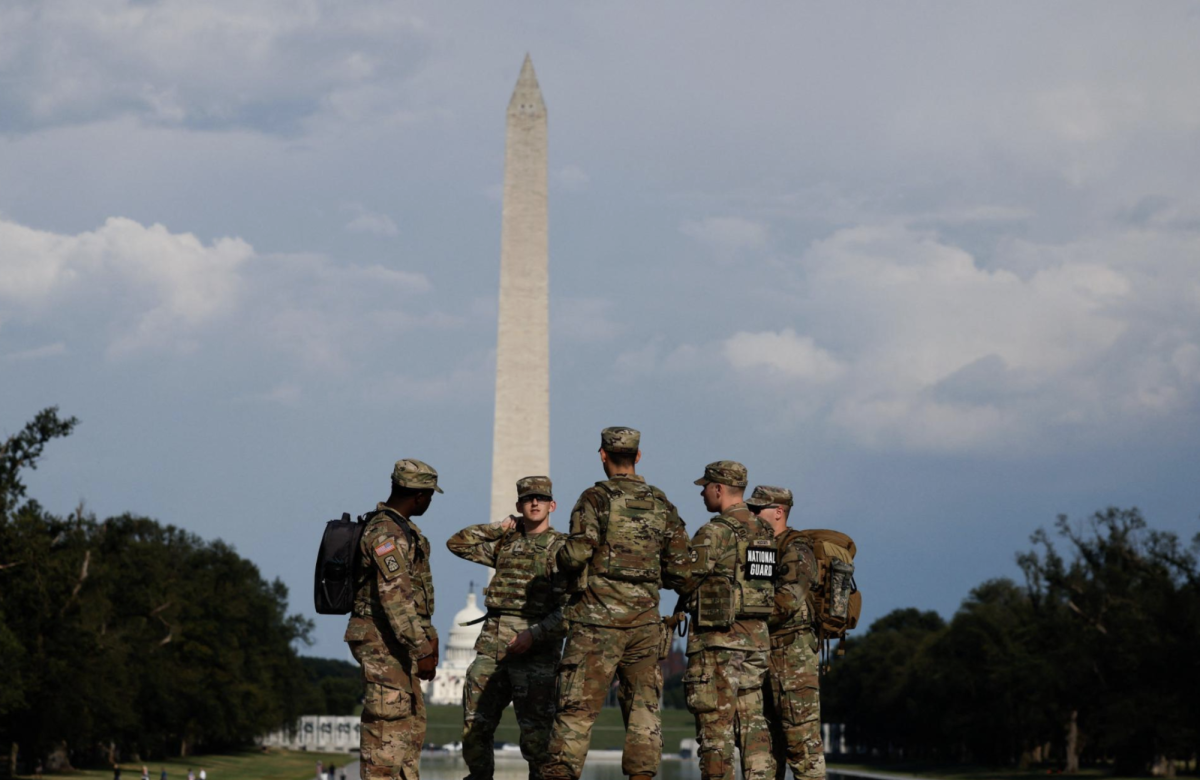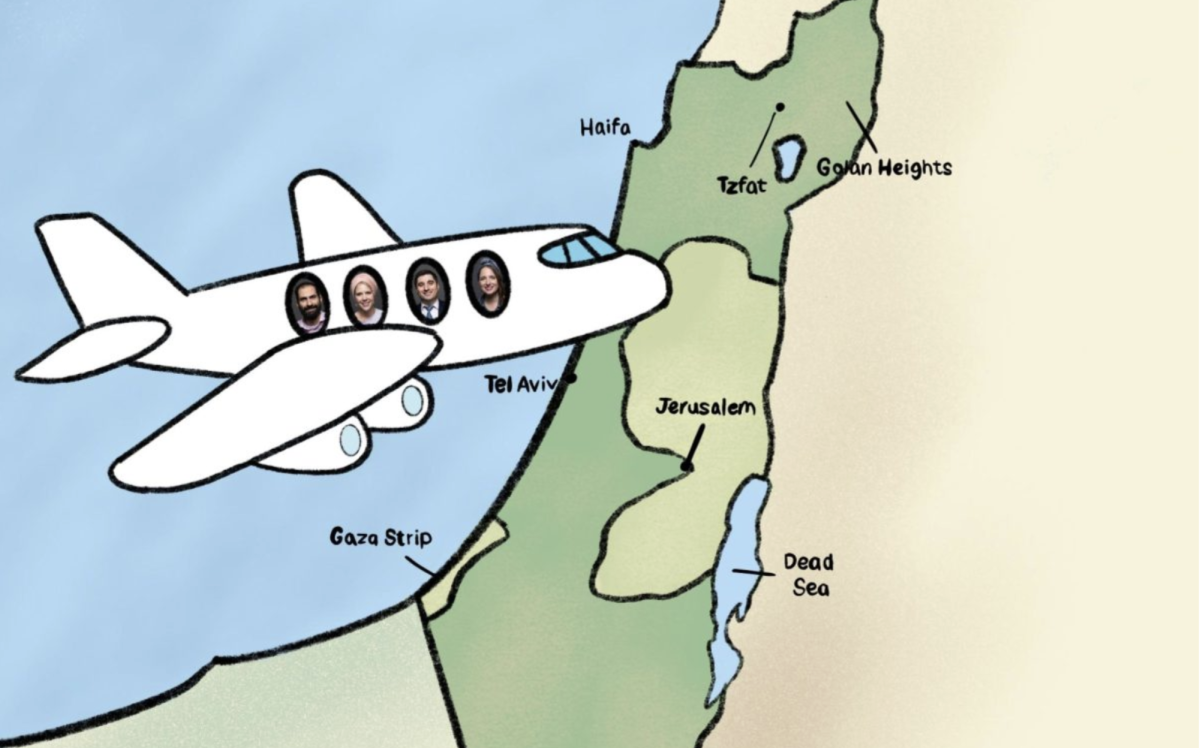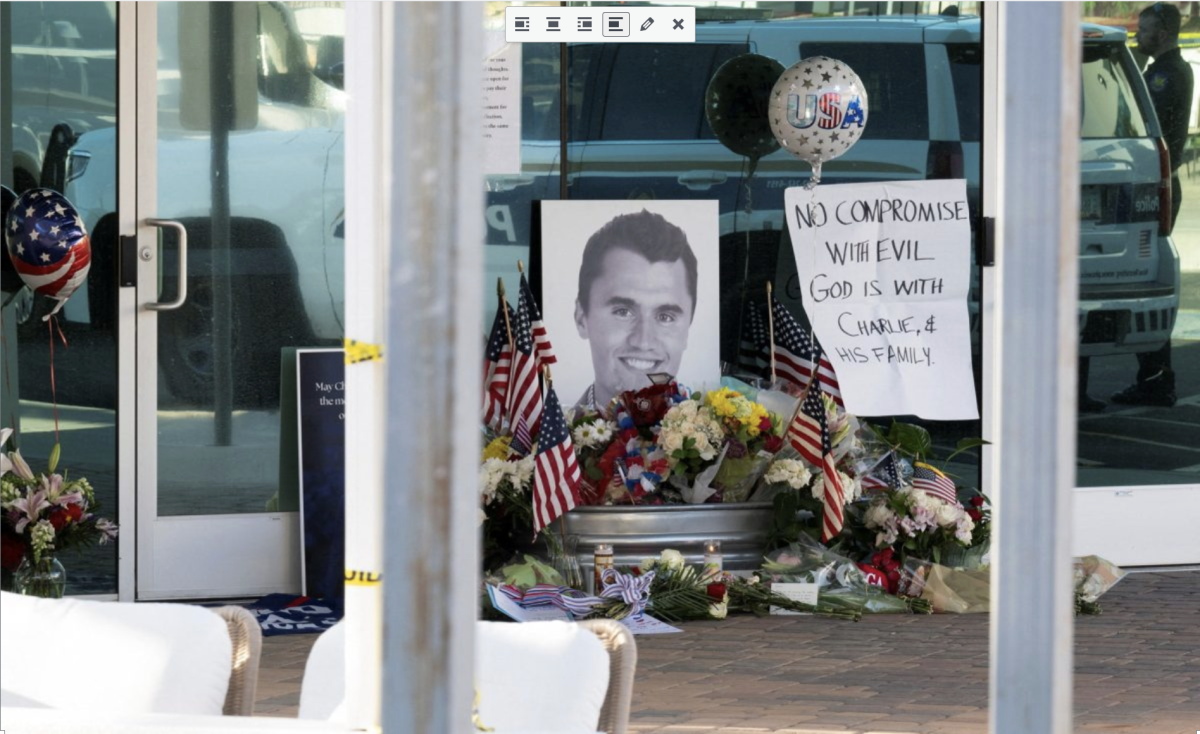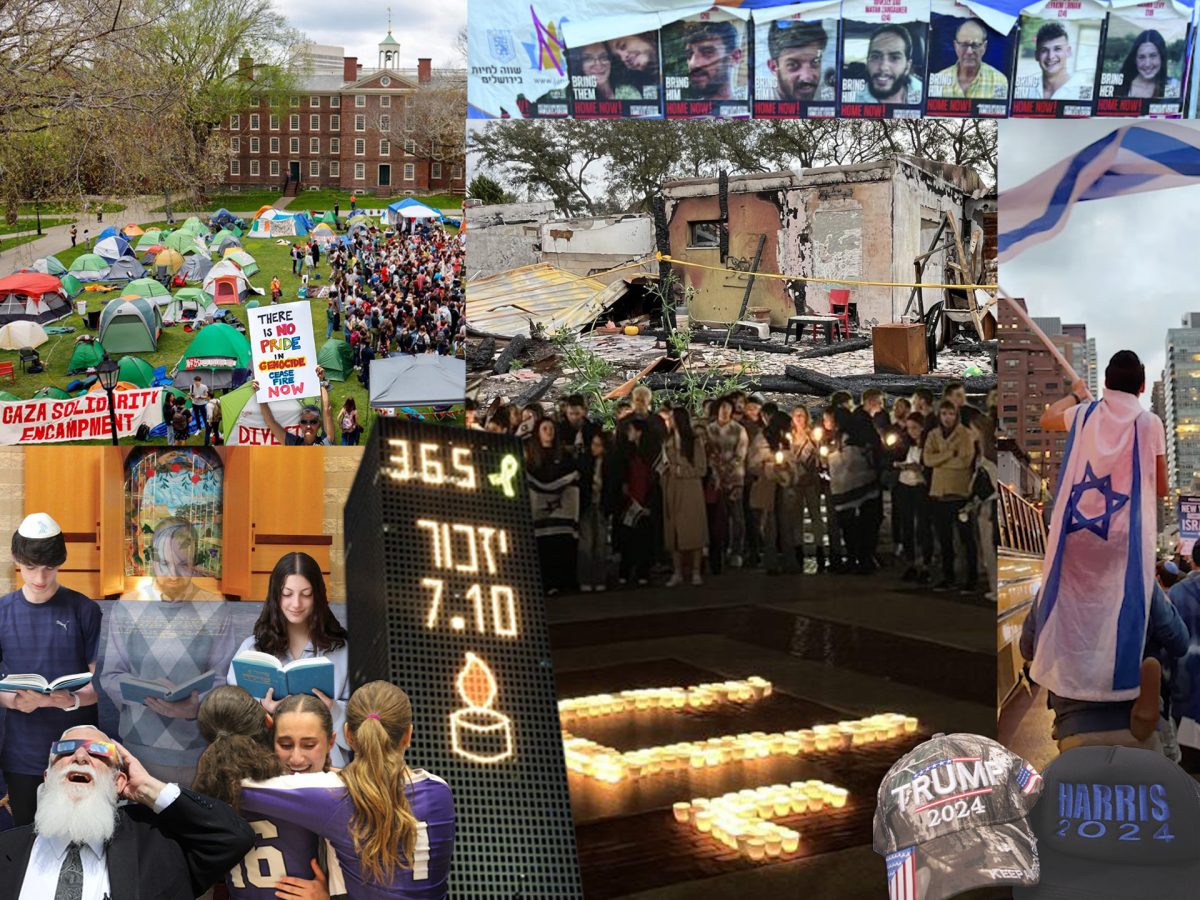As a participant in the Black/Jewish Teen Initiative (BJTI), senior Natanel Gold feels his world has grown larger.
“I’ve really kind of bursted my own personal bubble,” Natanel explained. Although he loves the Toco Hills and AJA communities, he says they are remarkably insular. “I don’t really get the opportunity to go out and interact with people who aren’t Jewish, who don’t have the same opinions in politics or in Israel as I do,” Natanel noted. The BJTI community feels very different. At BJTI, he said, he’s “really able to meet other people.”
Those other people include Black and/or Jewish teens from a variety of different backgrounds. BJTI, a program run by the American Jewish Committee (AJC), brings them together to discuss the intersection of Black and Jewish history–as well as the challenges faced by Black and Jewish communities today. Natanel, who applied and was accepted to BJTI after hearing about it on a prior AJC leadership program, is the first AJA student participant.
BJTI’s programming consists of seven in-person sessions, spaced out between October and February, which mostly involve engaging with speakers and participating in group discussions. Natanel has already attended three of those sessions, including an overnight trip to Alabama on October 22 and 23. The trip included visits to an African Methodist Episcopal Church in Georgia; a synagogue in Montgomery, Alabama; the Equal Justice Initiative civil rights museum; and a guided civil rights tour of Selma, Alabama.
Natanel feels he learned more on the trip than on other civil rights trips he has taken because many of his Black peers had personal and emotional connections to the civil rights history they engaged with. He saw how these sites had a powerful effect on them, and that helped him appreciate the importance of the events he learned about. It helped him understand “what really happened and how it really feels,” he said.
BJTI only has one overnight trip, but Natanel has found the non-overnight sessions of the program quite meaningful as well. At one, Black pastor Rev. Dr. Gerald Durley and Jewish activist Sherry Frank presented to the BJTI group about the importance of fighting for human rights. From this, Natanel learned about Michael Schwermer, James Chaney, and Andrew Goodman, all civil rights activists (Michael and Andrew were Jewish and James was Black) who were murdered in Mississippi for working together to register Black voters. “It was very sad to see that these people were working together and were finally really coming to speak, and they were killed,” he said. One of Natanel’s big takeaways from that session was the importance of remembering that no matter where they come from, everyone deserves respect as a human being.
BJTI has facilitated, officially and unofficially, intense discussions about contemporary issues as well as historical ones. Natanel remembers one discussion in which Black participants talked about feeling unsafe around police and uncomfortable wearing hoods up in public, and Jewish participants talked about needing police outside synagogues to feel safe and worrying about wearing kippahs in public.
Discussions about Israel have also been a big part of BJTI for Natanel. Issues around Israel haven’t come up in official BJTI programming, but Natanel has discussed them at length with friends from BJTI. “I really think we are able to talk about what’s going on in Israel and learn about each other’s history,” he said. Some peers post frequently about Gaza, sometimes posting what Natanel considers misinformation, and Natanel has confronted them about it. For the most part, Natanel thinks these discussions have been productive.
Natanel’s session of BJTI will wrap up on February 4. Until then, he looks forward to “learning and growing and building deeper bonds” during the rest of the program. So far, he feels that “it’s been eye opening” and has offered him a unique opportunity to learn through relationships with people who are different from him.
This story was published in AJA’s Palette on Jan. 9, 2024.














